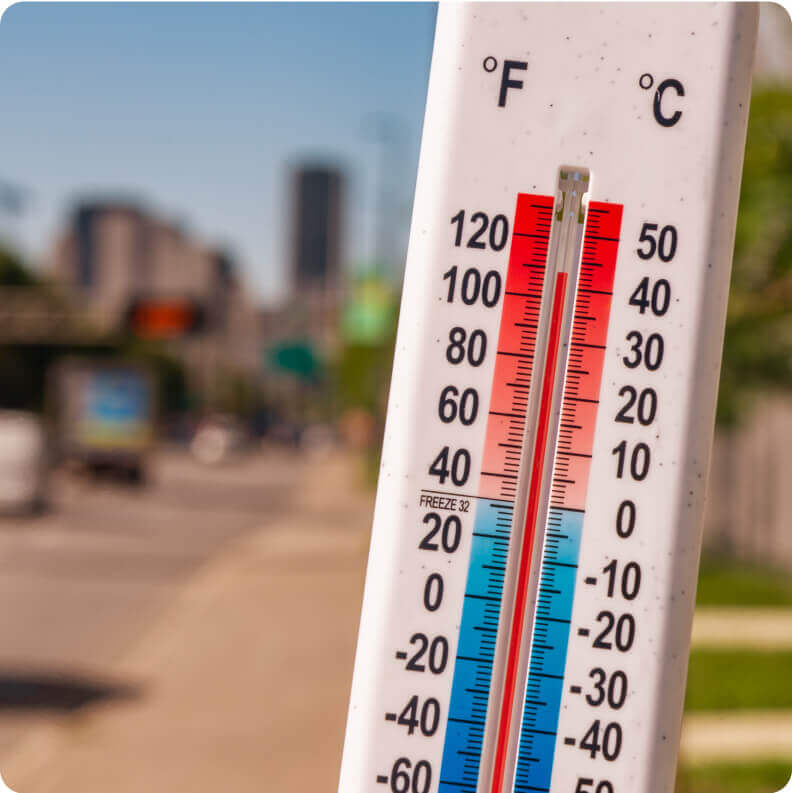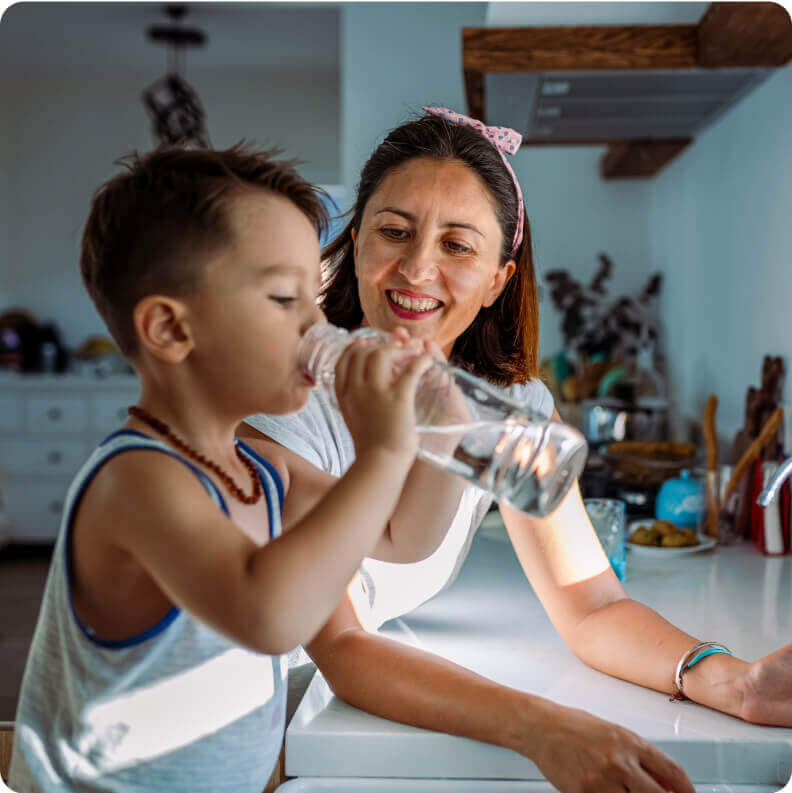Extreme Heat

Extreme heat events can pose a serious risk to people with chronic disease, or older adults, infants and young children. Long periods of extreme heat can also lead to other hazards such as flooding, poor air quality, and wildfires.

Preparing for extreme heat
It is important to monitor weather conditions for any heat warnings and alerts. You should also find your home's coolest room or a spot in your community where you can cool off, so you know what to do if it gets too hot.

What to do during a heat event
Some of the things you can do when the temperatures rise are:
- Drink lots of water
- Wear loose fitting clothing and a hat, and apply sunscreen if you are outdoors
- Stay inside or seek cooler, shady areas, or go somewhere with air conditioning such as a grocery store, shopping mall, or library
- Avoid strenuous outdoor activities
- Close curtains during the day, and use fans at night
- Take cool showers, baths, or apply wet cloths
- Check on vulnerable people (like infants, young children, seniors, and neighbours who may need help)
- Watch for signs of heat stroke and if you are experiencing a medical emergency call 911